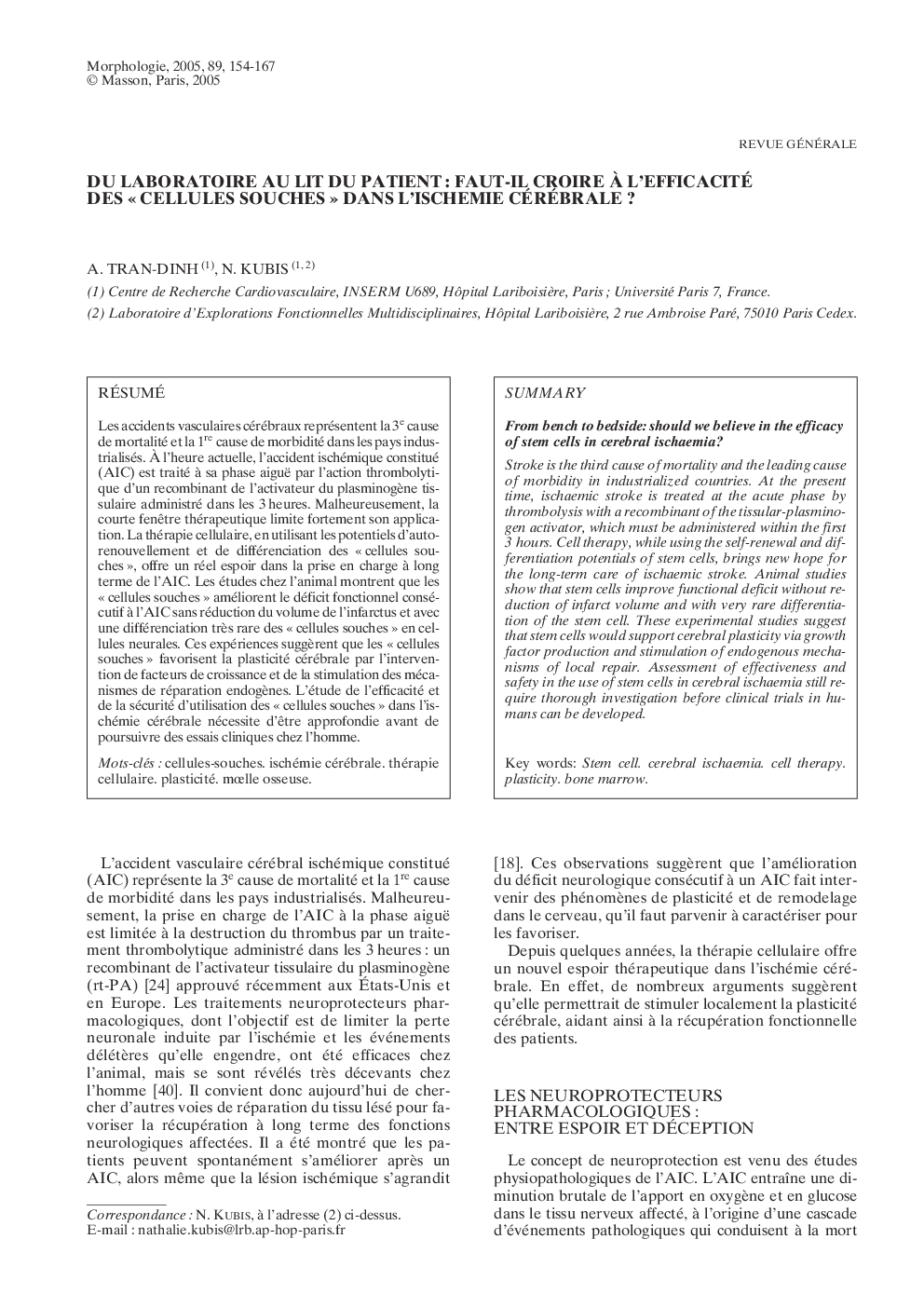| Article ID | Journal | Published Year | Pages | File Type |
|---|---|---|---|---|
| 10878122 | Morphologie | 2005 | 14 Pages |
Abstract
Stroke is the third cause of mortality and the leading cause of morbidity in industrialized countries. At the present time, ischaemic stroke is treated at the acute phase by thrombolysis with a recombinant of the tissular-plasminogen activator, which must be administered within the first 3 hours. Cell therapy, while using the self-renewal and differentiation potentials of stem cells, brings new hope for the long-term care of ischaemic stroke. Animal studies show that stem cells improve functional deficit without reduction of infarct volume and with very rare differentiation of the stem cell. These experimental studies suggest that stem cells would support cerebral plasticity via growth factor production and stimulation of endogenous mechanisms of local repair. Assessment of effectiveness and safety in the use of stem cells in cerebral ischaemia still require thorough investigation before clinical trials in humans can be developed.
Keywords
Related Topics
Life Sciences
Biochemistry, Genetics and Molecular Biology
Biochemistry, Genetics and Molecular Biology (General)
Authors
A. Tran-Dinh, N. Kubis,
